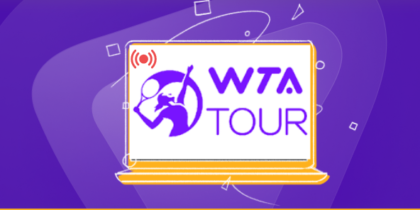The advent of the Internet has changed everyone’s lives for the better, but it comes at the cost of privacy. Everything from our conversations and credentials to emails and search history is left exposed to interested third-parties.
As such, it isn’t difficult to see why more and more people are using encryption that VPNs provide. At the click of a button, you can easily safeguard your online activities against cybercriminals, ISP tracking, and government surveillance.
If you’re concerned about where your data ends up, you want the extra layer of protection that military-grade VPN encryption can provide. Read on as we explain what the technology is, how it works, and why you need it.
What is Military-Grade VPN Encryption?
The Advanced Encryption Standard (AES), also referred to as military-grade encryption, is used by governments, intelligence agencies, and cybersecurity experts worldwide to encrypt sensitive information.
Most secure VPN providers use AES with 256-bit keys, which is virtually impossible to crack. Even if someone were to use supercomputers that can’t yet be built, it would take many billions of years to brute-force AES.
To a non-tech savvy person, the term AES-256 doesn’t mean much. To bring encryption technology to the masses worldwide, security companies began searching for a term that describes best-in-class security without much jargon. Thus, the term military-grade encryption was born.
How Does Military-Grade VPN Encryption Work?
When you establish a VPN connection from the client, your requests are encrypted before being sent to the remote server. Here, it’s decrypted and forwarded to the intended destination that could be anything such as a search engine or video-sharing website.
The requested data is encrypted once again and sent back to your device from the server. Once received, the client decrypts the data so that you can see it. Throughout this process, your encrypted data appears as gibberish to the outside world.
Neither Internet Service Providers nor cybercriminals can read your traffic, even if they’re able to capture it somehow. Likewise, governments are unable to get their hands on logs of your browsing history since none exist in the first place!

The Role of VPN Protocols
To put it simply, a VPN protocol refers to the processes used for creating a secure and fast connection between two devices. In this scenario, the device you use the client on and the remote server you connect to.
In fact, the vast majority of providers typically offer a variety of VPN protocols to determine the level of encryption employed in your VPN connection. These are some of the most popular VPN protocols today and a quick overview of their characteristics:
- PPTP: Fastest speeds, poor security.
- SSTP: Good security, not so fast.
- L2TP: Generally fast, uses IPSec for strong encryption.
- IKEv2: Relatively safe, based on IPSec, ideal for mobile devices.
- OpenVPN: Very secure, OpenVPN on UDP is faster than OpenVPN on TCP.

Top 3 Reasons Why You Need Military-Grade VPN Encryption
The following are a few good reasons why you should use military-grade VPN encryption every time you hop on the Internet:
1. Internet Service Providers (ISPs)
Since your ISP gives you a connection to the Internet, all your traffic goes through them. When you want to visit a website, a request is sent to your ISP which then redirects you to your desired destination. Do you know what this means? Your ISP can see everything that you do online!
If you don’t want your browsing history to be shared with the authorities or sold to advertisers, you should use a VPN. Upon connection, your traffic is secured with military-grade encryption for a safer and worry-free online experience.
2. Cybercriminals
If you frequently connect to public Wi-Fi, you’re essentially leaving your information susceptible to data-hungry cybercriminals. These networks are often unsecured, which means anyone can intercept the traffic between your device and Wi-Fi router.
Arming yourself with a VPN is the most effective way to stay secure on public Wi-Fi. With military-grade encryption applied to your connection, you can easily protect your online activities from eavesdroppers and snoopers on the same network.
3. Governments
Restrictive governments necessitate mass surveillance of their own citizens citing national security concerns. However, that still doesn’t make it okay – personal privacy is your right, and a VPN can help you reclaim it!
Your private data remains out of their reach, courtesy of military-grade encryption. As mentioned earlier, even if they force your ISP to hand over logs of your browsing history, they won’t be able to tell what you’re up to online.
What is the strongest VPN encryption?
Crack-proof encryptions are made possible via VPNs through the OpenVPN protocol. It offers AES-256-bit encryption that has no known vulnerabilities and a clean record.
Give Your Personal Data the Strongest Protection with PureVPN
If you want to keep your sensitive data to yourself, you need not look any further. PureVPN’s military-grade encryption has got you covered, and the best part is that you don’t have to be a cryptographer to take advantage of it.
Simply download the PureVPN app, log in using the credentials sent to you, and connect to any one of our 6500+ servers. That’s all it takes to use military-grade encryption on your data.
The sad truth is unless you use encryption, your traffic is visible to everyone. Third-parties can gain access to it through various means. That’s why you need to make your traffic private, and PureVPN can help with just that!
Wrapping Things Up
You may experience slow Internet speeds when you use a VPN because of the encryption that takes place. However, it doesn’t happen all the time. Sometimes it might occur, other times the difference is barely noticeable.
The good news is reliable VPNs such as PureVPN have workarounds in place to ensure you get high-speed connections at all times. Moreover, since we offer unlimited bandwidth, you can go about your online activities without worrying about quotas.
Do you have any questions or confusions about our military-grade VPN encryption technology? Feel free to use the comments section below, and we’ll be more than glad to get back to you.
Frequently Asked Questions
Does a VPN encrypt data?
Yes, a VPN encrypts data. When you’re connected to a VPN, it creates a secure tunnel for your data transfers, ensuring your sensitive information stays protected from potential eavesdroppers.
What is the highest level of encryption?
The most advanced encryption standard available today is AES-256 bit. This level of encryption is highly secure and is difficult for cybercriminals to compromise.
What is the strongest encryption for VPN?
The strongest encryption commonly used by VPNs is AES-256 bit. Its complexity makes it a formidable barrier against hackers and unauthorized access.
Can military-grade encryption be cracked?
Military-grade encryption, such as AES-256 bit, is currently considered almost impossible to crack using known methods and technology. While no system can be deemed 100% secure, this encryption offers a very high level of security.
What is the best military-grade encryption VPN service?
Choosing the best VPN service depends on your specific needs. However, when it comes to robust encryption, PureVPN is a rep




